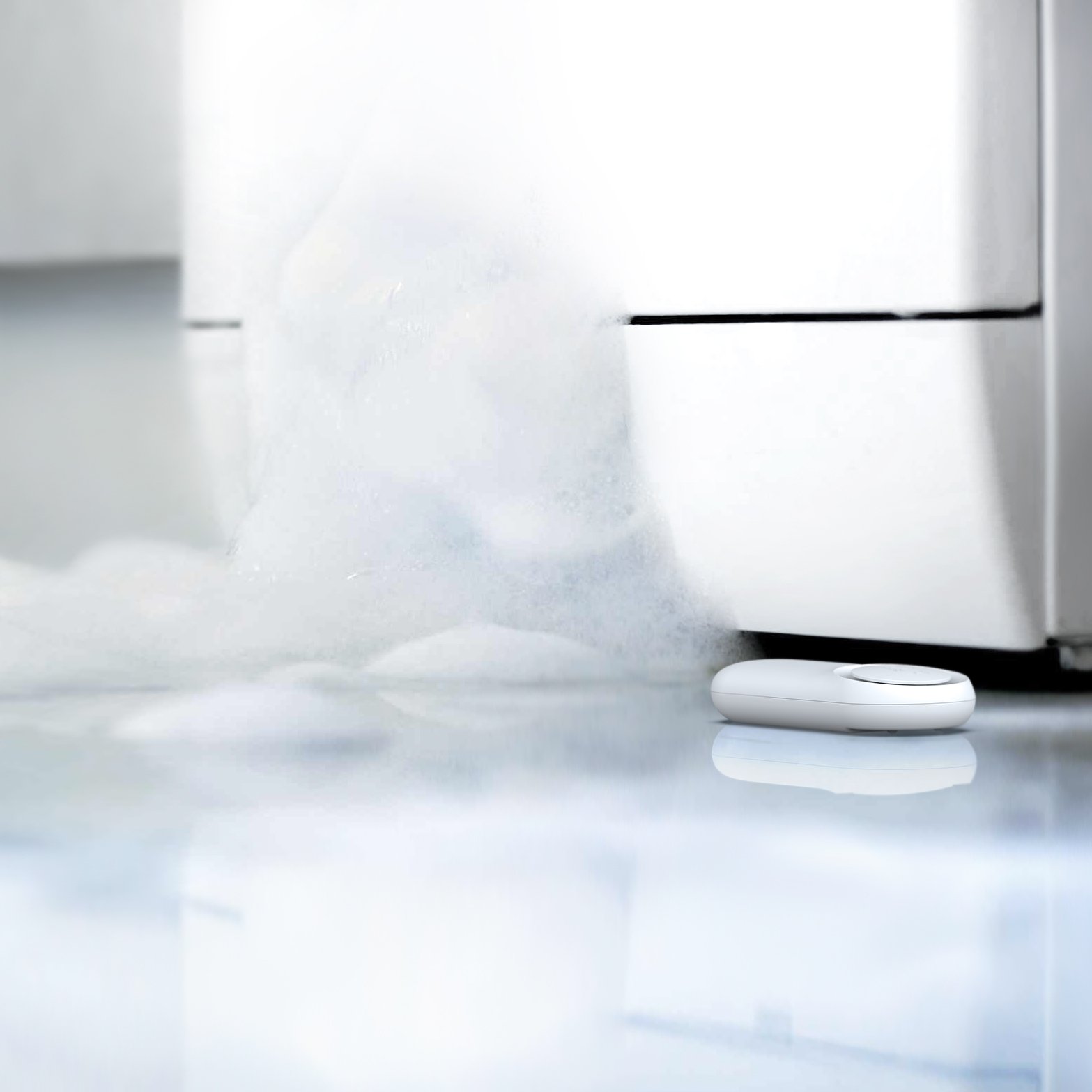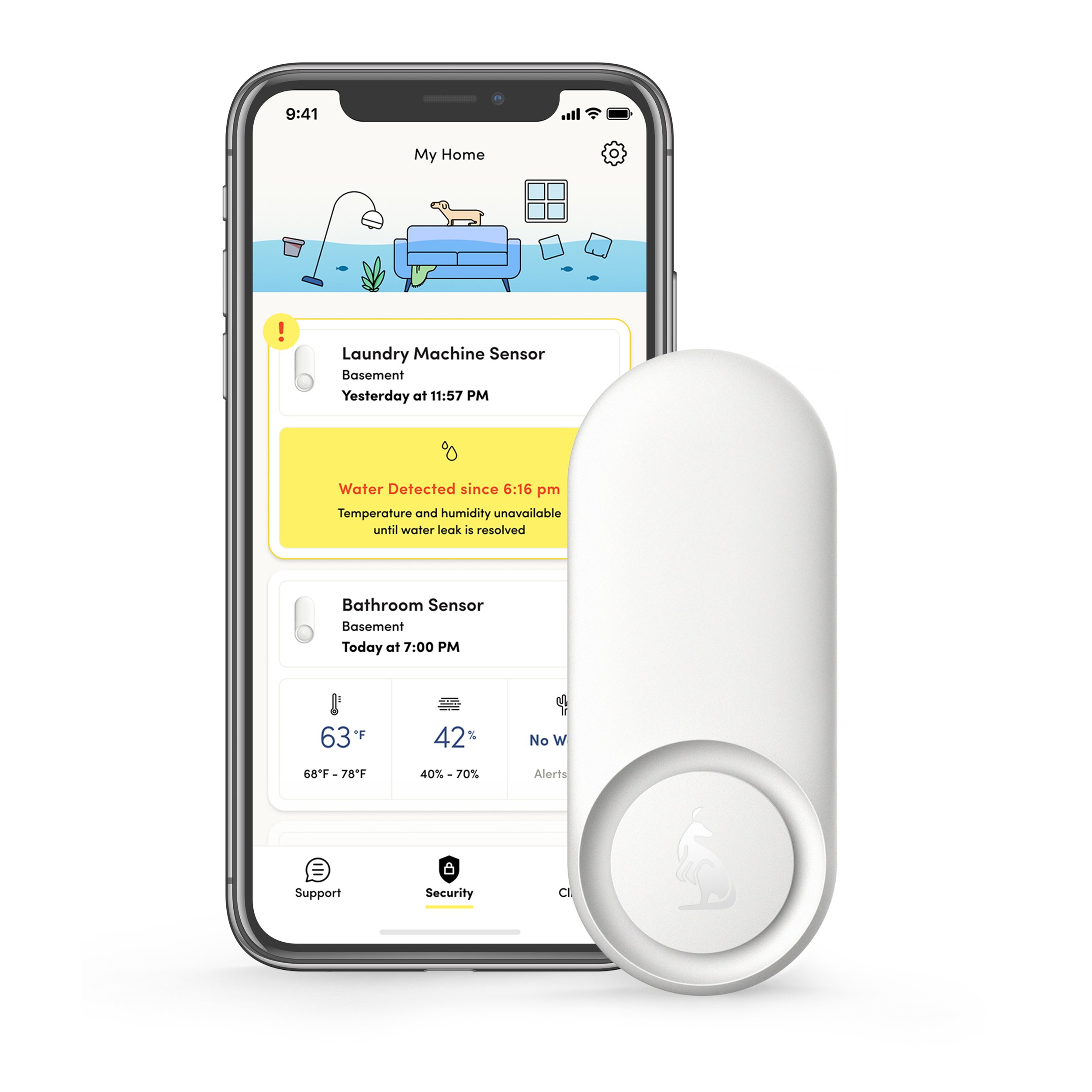Avoid Flooding: Best Water Leak Detectors for Your Basement
Why Every Home Needs a Basement Water Leak Detector
Water damage is one of the most expensive and stressful issues homeowners face. From leaky pipes to flooding, an undetected water leak can lead to mold growth, structural damage, and costly repairs. A smart water leak detector is the best defense against these threats, alerting you instantly before the problem escalates.
Common Causes and Costs of Basement Water Damage
Understanding potential water damage sources can help homeowners take preventive measures. Below is a breakdown of typical causes, affected areas, severity levels, and estimated repair costs:
| Type of Water Damage | Cause | Location | Severity | Estimated Cost of Repair |
|---|---|---|---|---|
| Roof Leak | Heavy Rain or Storm | Ceiling, Walls | Moderate | $500 - $1,500 |
| Pipe Burst | Frozen or Old Pipes | Basement, Bathroom | Severe | $1,000 - $4,000 |
| Appliance Leak | Faulty Washing Machine | Laundry Room, Kitchen | Moderate | $500 - $2,000 |
| Flooding | Natural Disaster | Entire House | Severe | $5,000 - $20,000+ |
| Foundation Crack | Groundwater Seepage | Basement | Moderate | $2,000 - $6,000 |
| Sewer Backup | Clogged Sewer Line | Bathroom, Basement | Severe | $2,000 - $10,000 |
| Window Leak | Poor Window Sealing | Around Windows | Mild | $300 - $1,000 |
Top Basement Water Leak Detectors in 2025
1. Kangaroo Water + Climate Sensor (Best for Comprehensive Monitoring)
Why It Stands Out: Monitors leaks, temperature, and humidity to prevent mold and freezing pipes.
Features:
Instant smartphone alerts for leaks, humidity, and temperature changes
Easy installation—just peel and stick near vulnerable areas
Affordable and reliable
Best For: Homeowners looking for an all-in-one basement water sensor.
2. LeakSmart Water Leak Detection System (Best for Automatic Water Shutoff)
Why It Stands Out: Integrates with smart home systems to automatically shut off water supply when a leak is detected.
Features:
Connects to Alexa, Google Assistant, and smart home hubs
Sends instant alerts via app and sirens
Ideal for preventing major water damage
Best For: Homeowners who want an automated water damage prevention system.
3. Moen Flo Smart Water Monitor & Shutoff (Best for Whole-Home Monitoring)
Why It Stands Out: Tracks water usage and detects even the smallest leaks.
Features:
Real-time water usage tracking
Automatic shutoff feature
Detects both minor drips and major leaks
Best For: Homeowners who want a smart home-integrated solution.
Why Choose the Kangaroo Water + Climate Sensor?
While regular water leak detectors are great, the Kangaroo Water Sensor is a whole other level. Here's why it's the perfect champion for your basement:
Basement Buddy: This detector thrives in the damp world of basements, unlike some fancy ones that might get fussy.
More Than Just Leak Lookout: The Kangaroo Water + Climate Sensor goes beyond just spotting leaks. It also keeps an eye on temperature and humidity, giving you a heads-up on potential problems like mold growth or frozen pipes before they become major issues. Think of it as a triple threat detective!
Tiny Leak Terminator: Disaster averted! This champion can detect leaks, stopping those little drips from turning into big, expensive problems.
Double Duty Alerts: Get informed fast! The Kangaroo Water + Climate Sensor sends instant alerts straight to your phone if your basement is at risk of flooding, mold, or freezing pipes. No more waiting for a loud alarm to wake you up; you can take action right away!
Simple Setup, Big Results: Forget complicated plumbing jobs! Setting up your Water Sensor is a breeze. Just peel and stick it in strategic locations like under washing machines, utility closets, or near pipes. Easy as pie!
Become Your Basement's Water Master: The Kangaroo Water + Climate Sensor lets you track your basement's temperature and humidity as often as you like. You can even set customizable ranges based on your needs. Imagine keeping your basement cool in the summer and preventing mold growth in the winter!
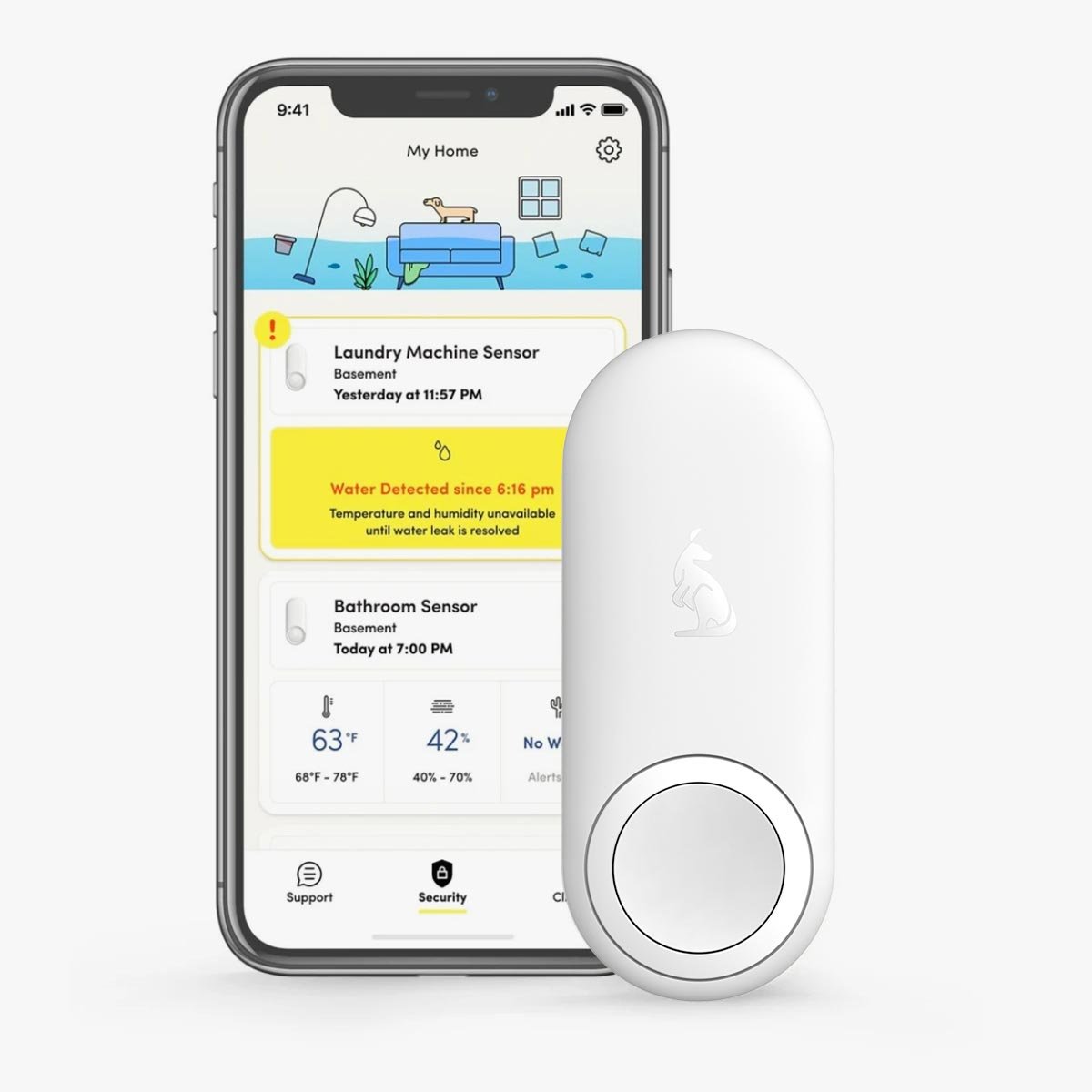
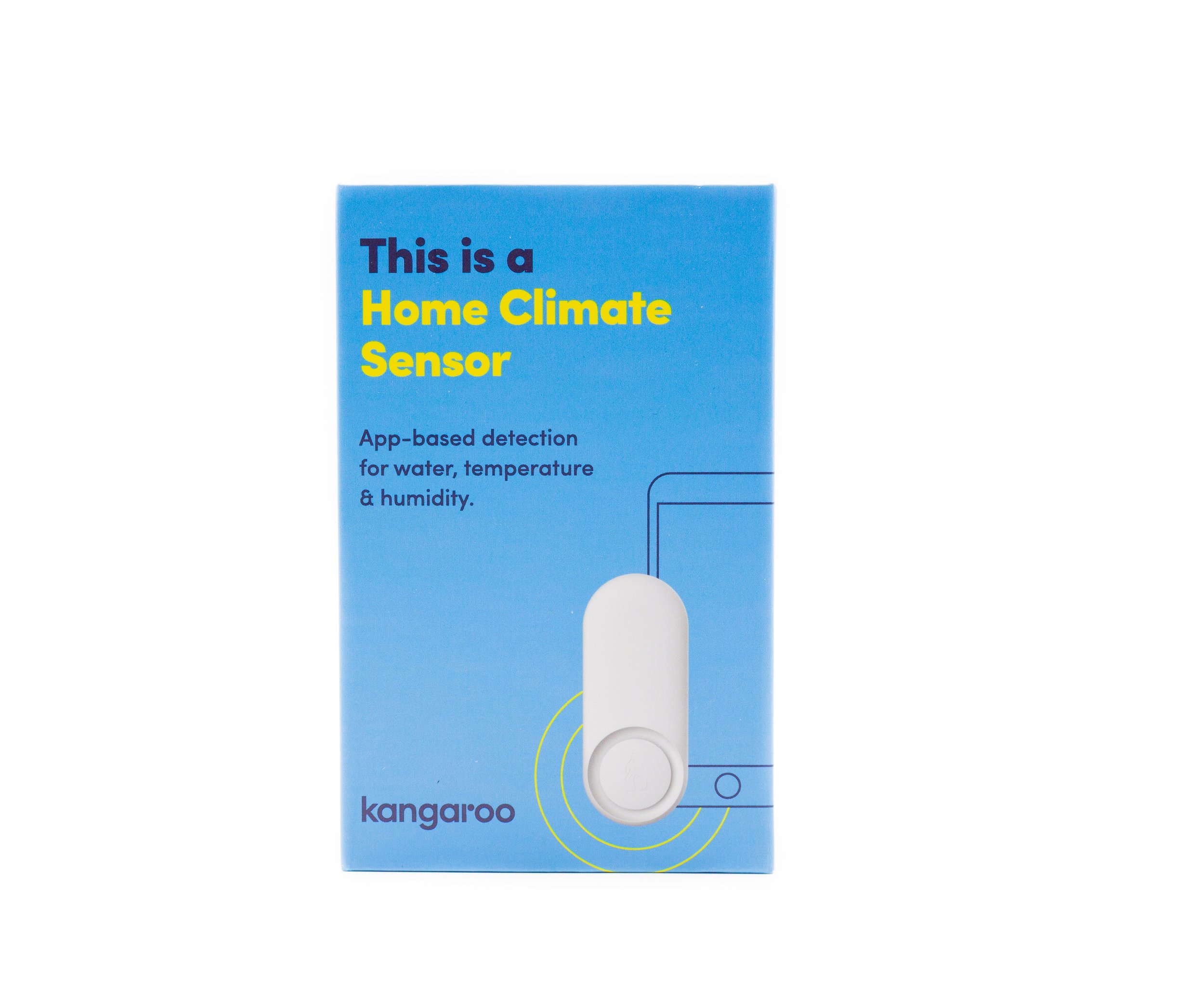
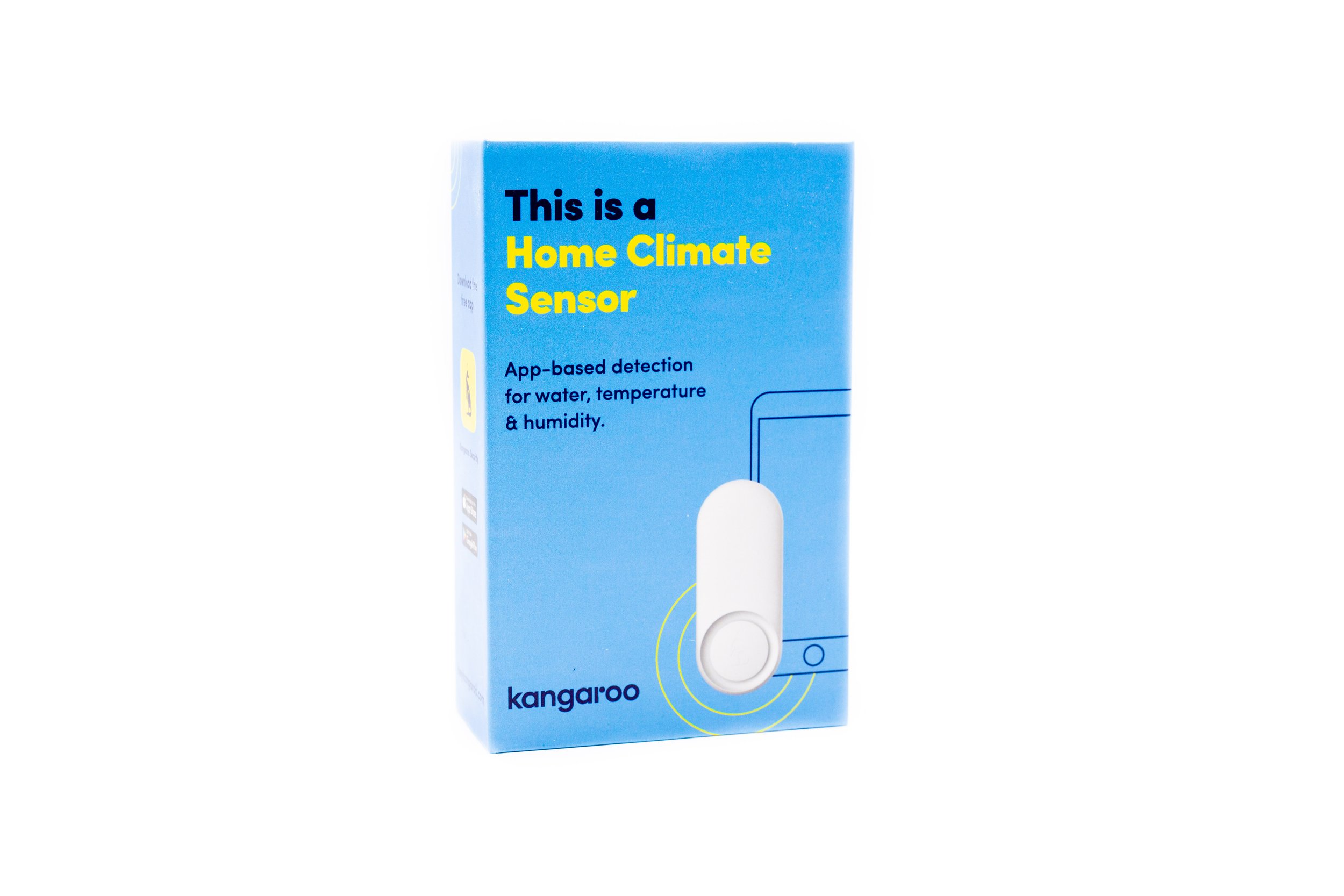
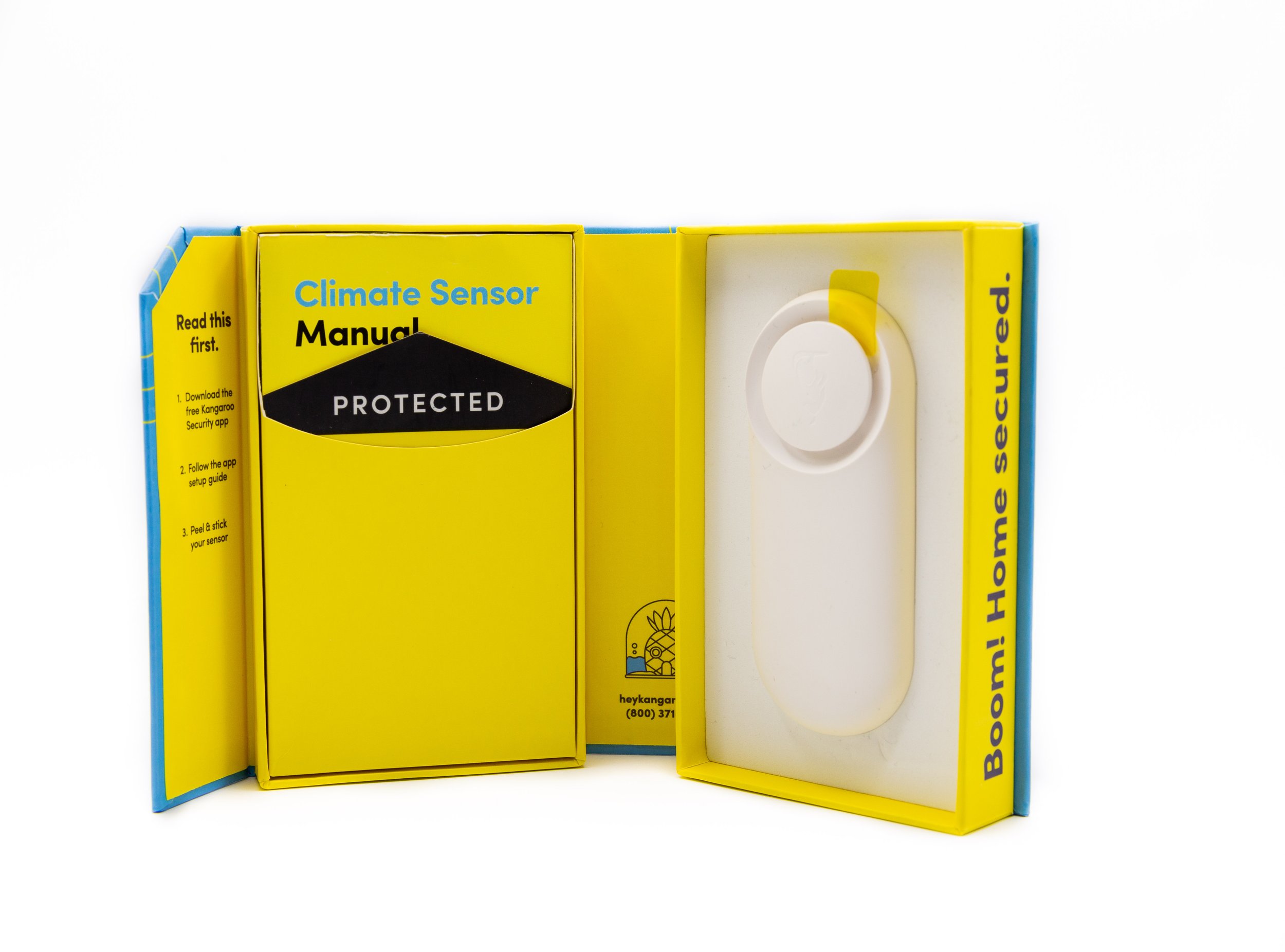
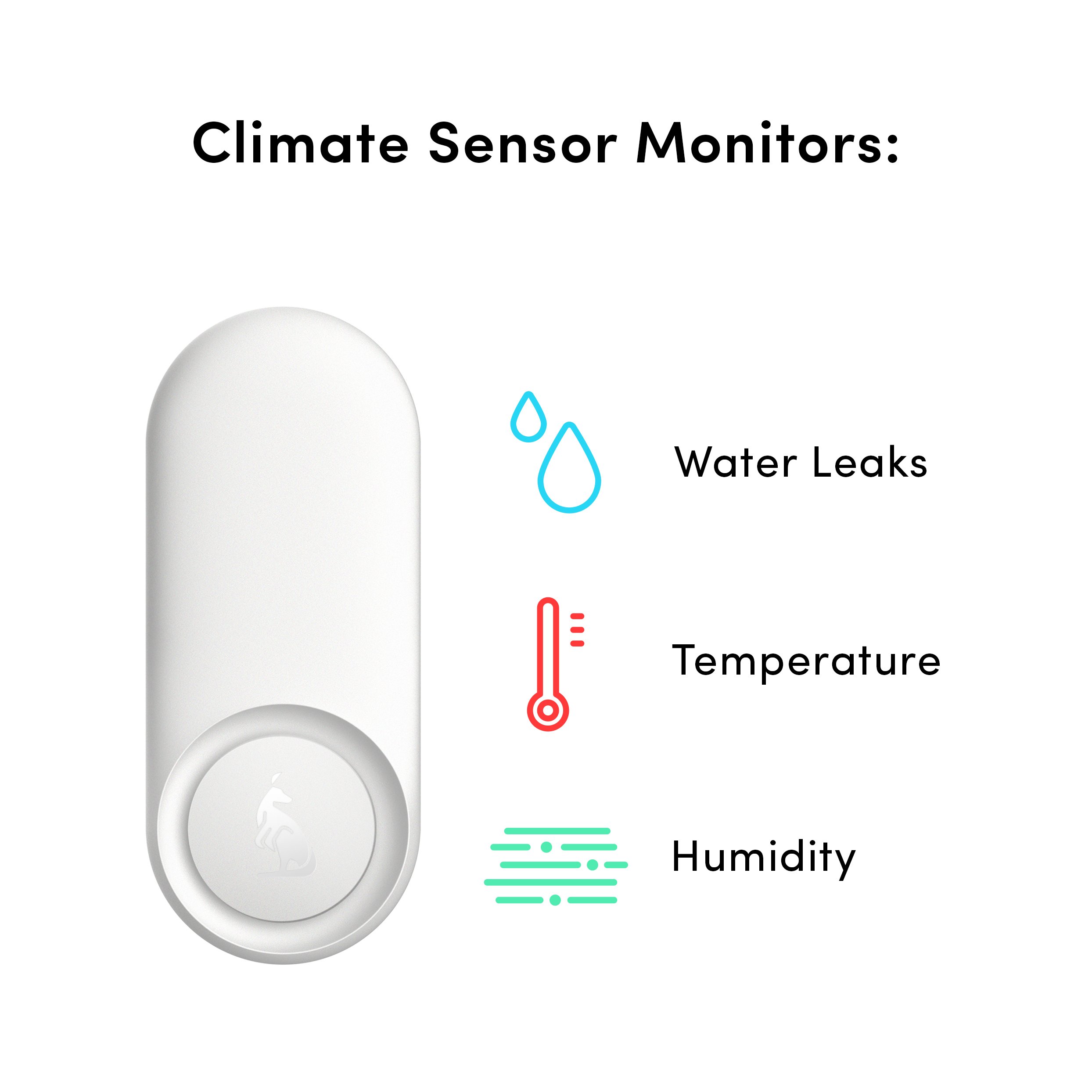
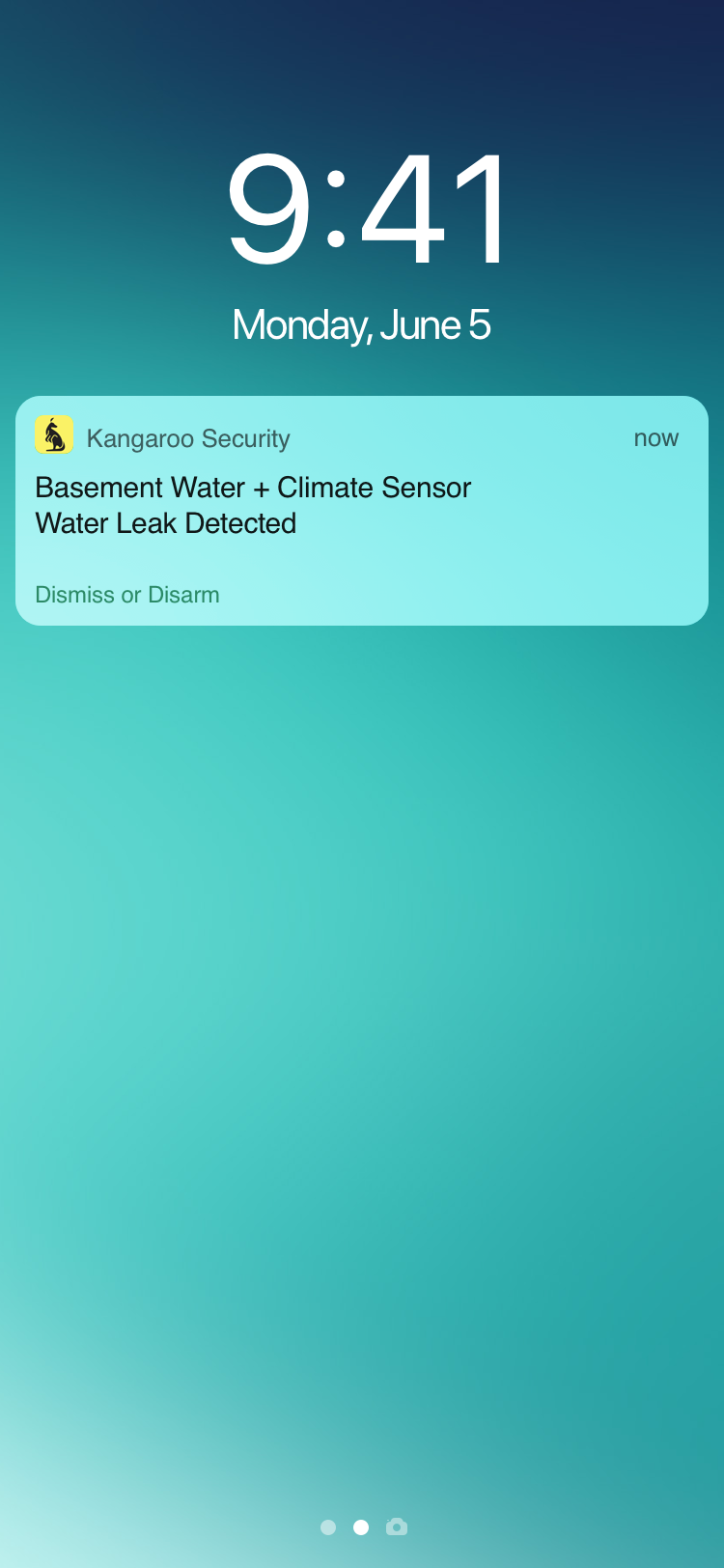
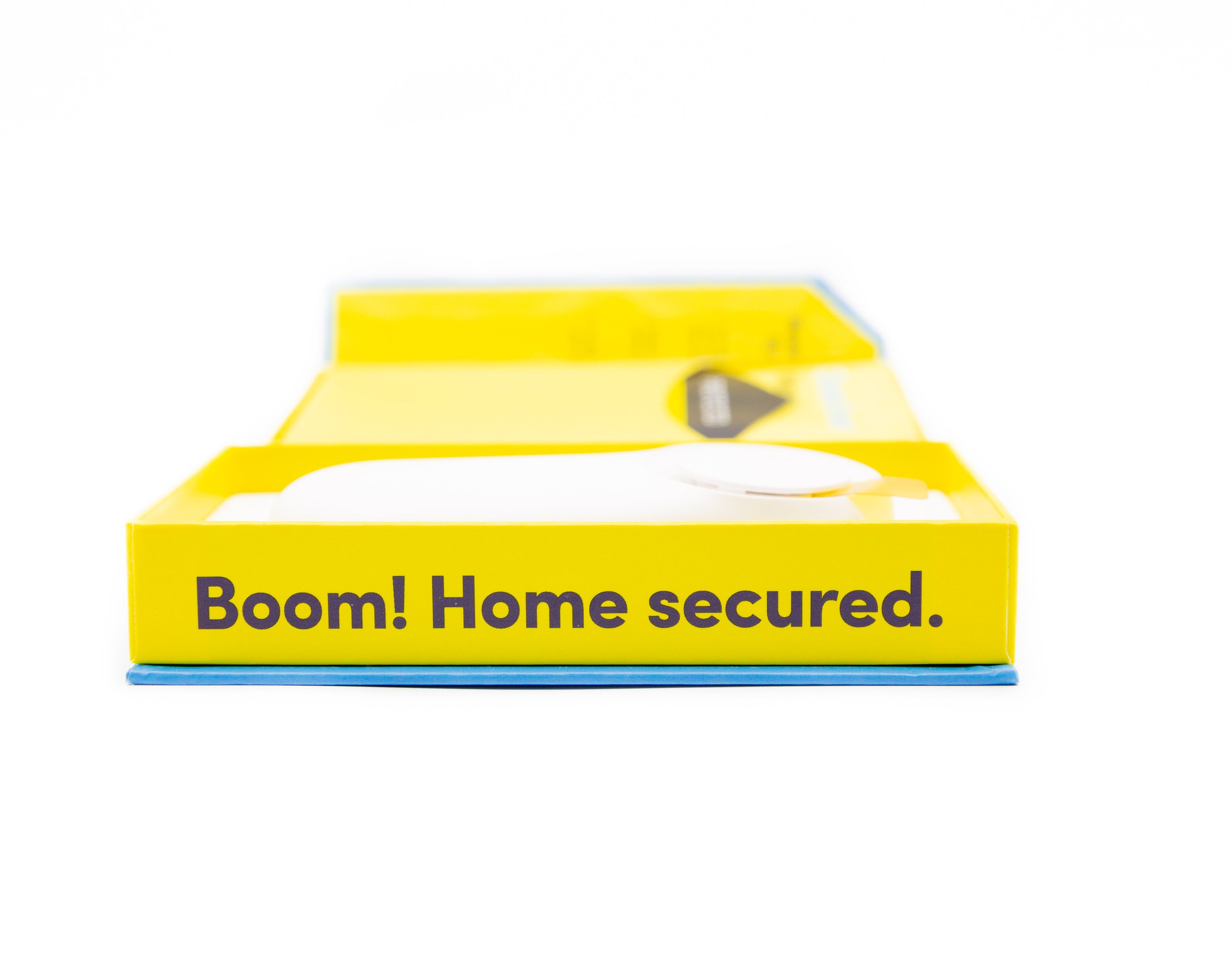
Kangaroo Reviews For Water + Climate Sensor
"Considering how much this unit can save in damages and the cost of repairs this item is a bargain. I had a little problem trying to pair it, but their chat tech support worked easily. I was skeptical at first so I tested it while in my home, then from 10 miles away and it worked perfectly." - Philip
"Best purchase from Kangaroo yet! I put one in my basement and would have never known that my sewer was backing up without it alerting me" - Samantha
"This is a must have! I keep it in my basement and I have a second one I purchased for a rental property. It's nice to have this extra level of protection." - Shalia
Why Smart Water Sensors Are Worth the Investment
A smart water sensor, also known as a water leak detector or water monitor, is an innovative device designed to detect the presence of water in your home. Unlike traditional alarms, these devices connect to your smart home system, providing real-time alerts through your smartphone or smart speaker, such as Alexa or Google Assistant, if a leak is detected.
Benefits of Using a Smart Water Sensor
1. Early Leak Detection:
Smart water sensors can identify even minor leaks before they escalate into major problems. This proactive approach can save you significant repair costs related to water damage.
2. Peace of Mind:
Having a water leak sensor on duty reassures you, especially during extended periods away from home. You can rest easy knowing that your smart water detector is monitoring for leaks.
3. Automatic Water Shutoff:
Some models, like the LeakSmart and Moen systems, can integrate with automatic water shutoff valves. If a leak is detected, these systems can automatically cut off the water supply to prevent extensive flooding.
4. Monitoring Water Usage:
Certain smart water monitors not only detect leaks but also track your overall water usage. This feature helps you identify potential leaks and areas where you can conserve water, promoting efficient home water management.
Key Features to Look for in a Smart Water Sensor
When choosing the best water sensor for your home, consider these important features:
Compatibility with Smart Home Systems: Ensure that the sensor is compatible with your existing smart home setup, whether it be Apple HomeKit, Amazon Alexa, or Google Assistant.
Sensitivity and Detection Range: Different models vary in how sensitive they are. Some can detect the tiniest amount of water, while others may require a more substantial leak to trigger an alert.
Alert Mechanisms: Look for options that provide various alert systems, including a loud siren, smartphone notifications, or integration with other smart home devices.
Battery Life: Consider how long the sensor's battery lasts to maintain uninterrupted monitoring.
Installation Ease: Opt for sensors that are simple to install and do not require professional plumbing assistance.
Optimal Placement for Water Sensors
To maximize the effectiveness of your water detectors, position them in strategic locations such as:
Near Water Sources: Place sensors underneath sinks, behind washing machines, and near water heaters to catch leaks before they spread.
Basements: Given their vulnerability to flooding, sensors should be installed near sump pumps or any entry points for water.
Around Water Pipes: Sensors should be located near washing machine hookups and in crawlspaces or attics where water supply lines run.
Conclusion
Investing in a smart water sensor is a proactive way to protect your home from water damage. With the ability to detect leaks early and integrate with your smart home system, devices like the Kangaroo water and climate sensor or LeakSmart provide not only peace of mind but also a means to manage water usage effectively. By choosing the right water leak sensor for your needs, you can enhance your home’s safety and efficiency.
Q&A: All About Smart Water Sensors for Your Home
-
A smart water sensor (also called a water leak detector or water monitor) is a small device that detects the presence of water. Unlike a regular alarm, a smart water sensor can connect to your smart home system and send you real-time alerts via your phone or smart speaker (like Alexa or Google Home) if it detects a leak.
-
There are many benefits to using a smart water sensor, especially in your basement or other flood-prone areas:
Early leak detection: Smart water sensors can detect even small leaks before they cause major damage. This can save you a lot of money on repairs and replacements.
Peace of mind: Knowing you have a water sensor on guard can give you peace of mind, especially when you're away from home.
Automatic water shutoff: Some smart water sensors, like LeakSmart or Moen Flo, can connect to a smart water shutoff valve. This means if a leak is spotted, the valve can automatically shut off your home's water supply, preventing a major flood.
Track water usage: Some smart water monitors can even track your overall water usage, helping you identify potential leaks and areas where you can conserve water.
-
Here are some things to keep in mind when shopping for a water sensor:
Compatibility: Make sure the sensor is compatible with your existing smart home system (e.g., Apple HomeKit, Amazon Alexa).
Detection range: Consider how sensitive the sensor is. Some can detect even a tiny amount of water, while others may require a larger leak.
Alert options: Does the sensor offer a loud alarm, phone notifications, or both?
Battery life: How long will the sensor battery last?
Ease of installation: Look for sensors that are easy to set up without needing a plumber.
-
Here are some key locations to place your water sensors:
Near water sources: Underneath sinks, washing machines, water heaters, and dishwashers.
Basements: Since basements are prone to flooding, placing a sensor near the sump pump or other water entry points is crucial.
Around water pipes: Near washing machine hookups, crawlspaces, and attics where pipes are located.
-
There's no single "best" water sensor as it depends on your needs and budget. The Kangaroo Water Sensor is a great option for basements as it can handle high humidity and monitor temperature/humidity. However, LeakSmart and Moen Flo offer automatic water shutoff capabilities, which might be a priority for some.
-
Some smart water sensors can function with a separate hub instead of relying solely on Wi-Fi. These hubs often use a different signal, like Z-Wave, for better connection and reliability. Double-check the product details to see if a hub is required.
-
Absolutely! Many water sensors offer standalone functionality. They might have a built-in siren to alert you directly if a leak is detected, or they might connect directly to your phone via Bluetooth for basic notifications.
-
The decibel level (loudness) of sirens can vary depending on the model. Some sensors offer adjustable siren volumes, while others have a fixed decibel level. Look for product specifications or reviews to get an idea of the siren strength.
-
Yes! Depending on the sensor and your smart home system, you might be able to create automations. For example, if a leak is detected, a smart water sensor could trigger smart lights to turn on or send a notification to your smart thermostat to shut off the water supply (if you have a compatible system).
-
Most water sensors will send you a notification when the battery is low, giving you time to replace it. The sensor itself will usually still function for a short period on low battery, but replacing it promptly is crucial for uninterrupted leak detection.
-
Not all water sensors are created equal. While some can handle splashes or humid environments, they might not be suitable for direct exposure to rain or freezing temperatures. Always check the product specifications for outdoor suitability.
-
While they're incredibly helpful, water sensors can't detect leaks within walls or behind closed cabinets. It's still important to be mindful of your water usage and check for any visible signs of leaks regularly. Additionally, some sensors might require a subscription service for full functionality, like remote access or extended cloud storage of data.
-
A sump pump is a great line of defense, but it's not foolproof. Heavy rainfall, clogged drains, or power outages can overwhelm a sump pump. Having a water sensor in your basement can act as an early warning system, even if you have a sump pump installed.
-
The term "water guard" can have a couple of meanings:
Household Water Treatment: In some regions, "water guard" refers to a dilute sodium hypochlorite solution used for point-of-use water treatment. This solution helps disinfect drinking water, particularly in areas with questionable water quality.
Leak Detection Device: More commonly, a water guard refers to a water leak detector or water sensor. These are electronic devices placed in strategic locations around your home to detect leaks and water damage.
-
Essentially, yes. Both terms refer to devices that detect the presence of water. However, "water leak sensor" "water leak detector" is a more specific term, while "water guard" can have a broader meaning depending on the context.
-
Water leak detectors use various technologies to sense water. Some common methods include:
Conductivity sensors: These sensors detect changes in electrical conductivity when they come into contact with water.
Float switches: These simple devices contain a float that rises when water is present, triggering an alarm.
Smart water sensors: These advanced sensors often use a combination of methods and can connect to your smart home system, sending real-time alerts to your phone or smart speaker.

